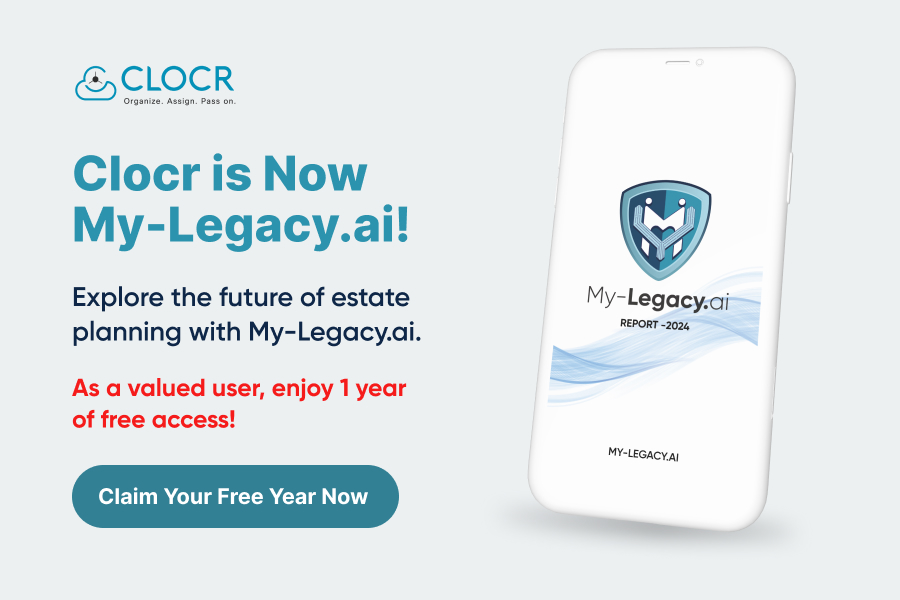Cryptocurrency is a Digital Asset that is built on Blockchain technology and only has Online existence. Ledger is the term used for the computerized database that handles transaction records backed by Asymmetric Cryptography for security. Used for transactions online, the IRS(Internal Review Service) considers cryptocurrency as a financial asset.
In this post you will learn about:
- The Cryptocurrency Boom
- Ways to plan for your Cryptocurrency Inheritance
- Centralized Exchanges And Custodial Wallets
- Decentralized Exchanges And Non-Custodial Wallets
The first cryptocurrency i.e. Bitcoin launched in 2009 has a market value of $1.2 trillion as of November 2021 and is increasing continuously. But why are people putting their trust in currencies that do not have a real-world existence? Why are cryptocurrencies getting popular day by day?
The Cryptocurrency Boom
On 17 December 2017, Bitcoin’s price rose to $20,000 and shook the world. Thereby, Bitcoin became popular and people who had no idea of its presence started exploring it. With that, the popularity of cryptocurrency rose, and today, there are around 10,000 cryptocurrencies in the world. Like every other currency, cryptocurrencies also saw multiple rises and dips in their values in recent years, but the popularity of this asset never dipped and the reasons behind this are:
- No third party(Credit card company or bank) is involved in the transfer of funds, removing the need to pay huge fees for processing online transactions. Direct transactions take place between two participants(specific to Decentralized Exchanges and Non-Custodial Wallets) that are completed with minimum processing fees.
- Cryptocurrencies are not regulated by the Government and remain unaffected by state policies.
- Bitcoin is specifically praised for its feature to resist inflation since its supply is limited. There will be 21 million bitcoins ever and every four years the amount of bitcoin mined is reduced by half.
- You would be living under a rock if you don’t know who Elon Musk is and how he popularised cryptocurrencies through tweets. People like to follow the trend and with popular companies and public figures taking interest in cryptocurrencies, the rise in investments in this Digital Asset is inevitable.
- Security is promised through public and private keys. A person’s crypto wallet has a public key(shared openly) and a private key(known only to the owner).
Undoubtedly, Cryptocurrency could be the future of transactions and presently holds huge financial value to many. It is sad that many people are still ignorant towards the future planning for this financial asset.
The story of Quadriga CX founder Gerald Cotten became huge because $135 million was lost. But there are many stories where cryptocurrency accounts and all the money held within were lost after the owner’s death. Families desperately tried to access those accounts in search of some financial help but of no use.
You might be interested in:
Cyber Security Awareness Month: How to safeguard your important online documents and accounts?
What Are Monetary Digital Assets?
Sudden incapacitation and demise cannot be helped, but planning for your Cryptocurrency Inheritance can help you and your family financially and provide easy access to your cryptocurrency accounts. Let’s have a look at ways to plan for your Cryptocurrency Inheritance.
Note Down Important Details
One way is to take the matter into your own hands and note down the details of your cryptocurrency accounts on paper and store these details somewhere safely, where your family would be able to access them. Different types of tools for transactions are used in the Crypto Industry, let’s have a look at these tools and the process of starting this method with them:
Centralized Exchanges And Custodial Wallets
A Centralized Exchange System is similar to a Banking System where people deposit their funds to a third party(exchange) and from thereon the transactions and safety of the funds are under the control of the Exchange. People can access their accounts in these exchanges using the login details.
If you’re going for this method then you need to write down the exchange platforms where you have accounts and their login details on paper and store this somewhere safe, like a bank locker(in case you have large holdings). The same method can be applied to store details of a Custodial Wallet, where the private keys are held by the exchange.
Decentralized Exchanges And Non-Custodial Wallets
Decentralized Exchanges allow direct transitions between two parties without any intermediaries. This means that a cryptocurrency account is fully controlled by the owner and a Non-Custodial Wallet comes into the scene, where the private keys are held by the owner of the cryptocurrency account.
The simplest way for your family to access the details of Non-Custodial Wallets is to write down the names of all wallets you use and their recovery phrase(representation of private keys in human-readable form) and store them safely. Then, you can create another list consisting of your wallets and the type of cryptocurrencies within them.
Create A Will Or A Trust
You can always create a Will and mention your cryptocurrencies along with your other assets and figure out the way all your assets will be distributed among family members. A Trust for your cryptocurrency can help avoid probate and will keep the details of your accounts and wallets private.
It is your call to choose the option that suits your needs and protects your Cryptocurrency accounts and the funds held within. Sorting out your Cryptocurrency Inheritance through a Digital Will is easy and fast. Planning for these accounts saves your funds and your family’s financial stability in the present and in the unprecedented future.



